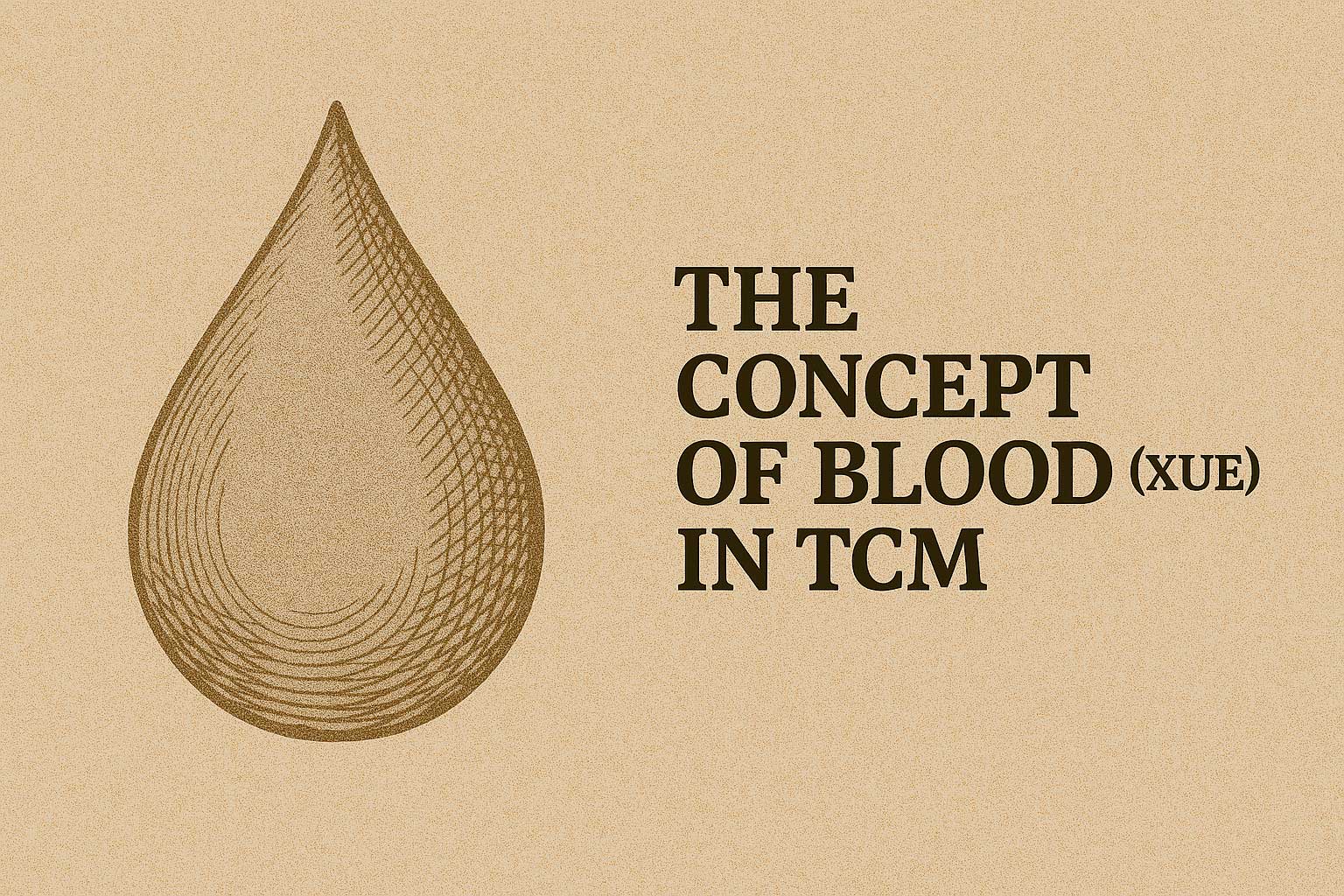In Traditional Chinese Medicine (TCM), Blood (Xue, 血) is a fundamental substance of life, intricately linked with Qi (vital energy) yet distinct in nature and function. While Western medicine sees blood primarily as a physical fluid, TCM views Blood as both a material substance and an energetic carrier of nourishment, emotion, and consciousness.
This article explores the concept of Blood in TCM — its origins, functions, relationship with Qi, and its role in health and disease.
🔶 What Is Blood in TCM?
In TCM, Blood is defined as a red, nourishing fluid formed from the transformation of food and Qi. Unlike Qi, which is dynamic and invisible, Blood is dense, material, and Yin in nature.
🔬 Origin of Blood (血生于脾,藏于肝,行于脉):
- Generated by the Spleen and Stomach, which transform food into Nutritive Qi and Blood.
- Stored and regulated by the Liver, which ensures smooth circulation.
- Propelled by Heart Qi, which governs the vessels and ensures flow.
🔶 The Functions of Blood
| Function | Explanation |
|---|---|
| Nourishment (滋养) | Supplies nutrients to organs, tissues, skin, hair, and sense organs. |
| Moistening (润泽) | Keeps tissues soft, moist, and functional — especially skin and joints. |
| Housing the Shen (神) | Blood anchors the Mind/Spirit; stable Blood supports mental clarity and emotional balance. |
| Menstrual Regulation | In women, Blood governs the menstrual cycle and fertility. |
🔶 Blood and Qi: The Vital Partnership
TCM often says:
“Qi is the commander of Blood; Blood is the mother of Qi.” (气为血之帅,血为气之母)
- Qi moves Blood — Without Qi, Blood would stagnate.
- Blood nourishes Qi — Blood carries the essence that sustains Qi.
This dynamic explains why Qi or Blood deficiency often occur together, and why treatment must address both.
🔶 Blood Disorders in TCM
| Pattern | Symptoms | Common Causes |
|---|---|---|
| Blood Deficiency (血虚) | Dizziness, pale lips, dry skin, insomnia, scanty menstruation | Poor diet, overwork, chronic illness |
| Blood Stasis (血瘀) | Sharp pain, dark complexion, purple tongue, clots | Trauma, Qi stagnation, cold |
| Heat in the Blood (血热) | Bleeding (e.g. nosebleeds), red rashes, irritability | Excess heat, emotional stress, febrile disease |
Treatment may involve herbs, acupuncture, and diet — depending on the root pattern.
🔶 Nourishing Blood: Daily Support
TCM emphasizes blood-building through food, herbs, and rest:
- Blood-nourishing foods: Black beans, spinach, red dates (hong zao), animal liver, eggs
- Herbs: Dang Gui (Angelica), Shu Di Huang (Rehmannia), He Shou Wu, Bai Shao
- Rest: Sleep is essential for Blood regeneration, especially between 11 PM and 3 AM (Liver time)
- Emotion: Emotional stress impairs Liver, which stores Blood
🔶 Conclusion
Blood in TCM is more than just a fluid — it is a carrier of life force, emotion, and consciousness. Understanding Blood as a dynamic system interconnected with Qi, organ function, and lifestyle allows TCM to approach conditions from a whole-person, preventative perspective. In nourishing Blood, we nourish vitality itself.


发表回复